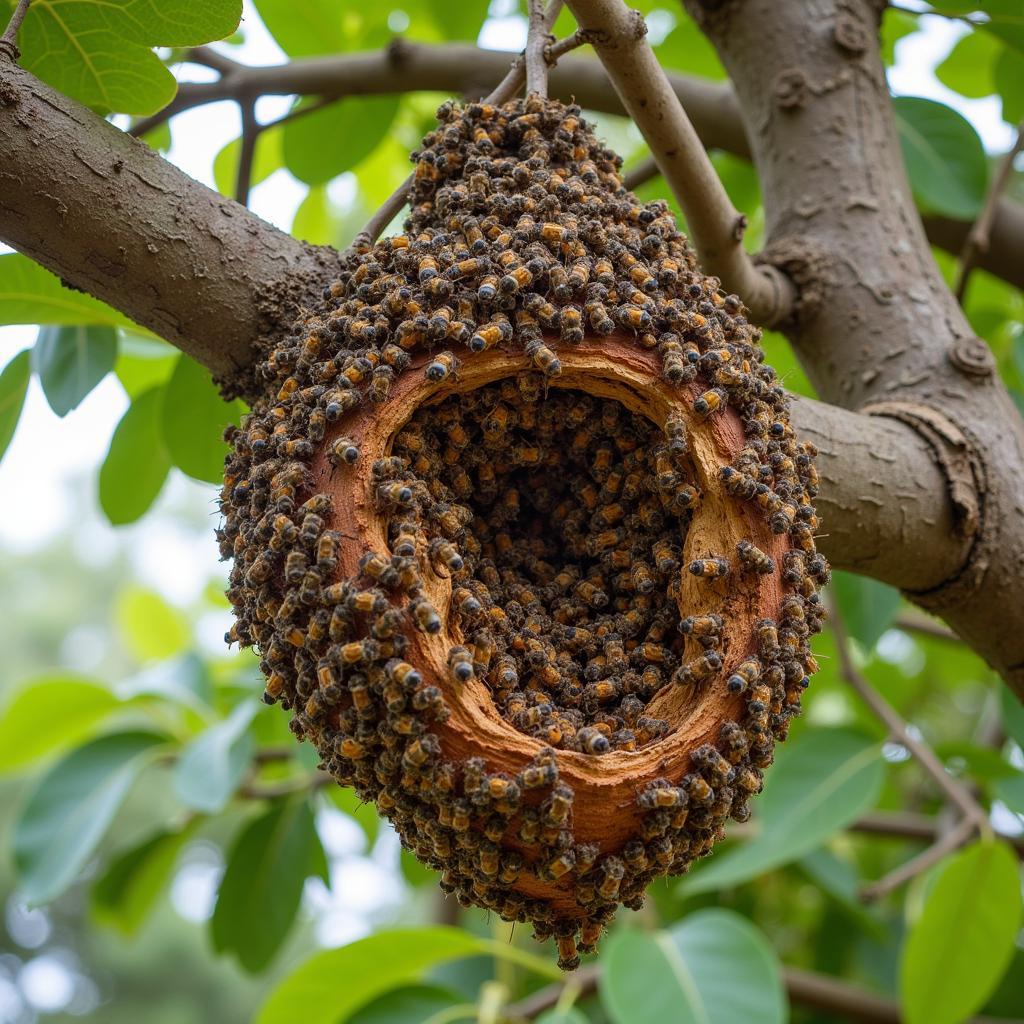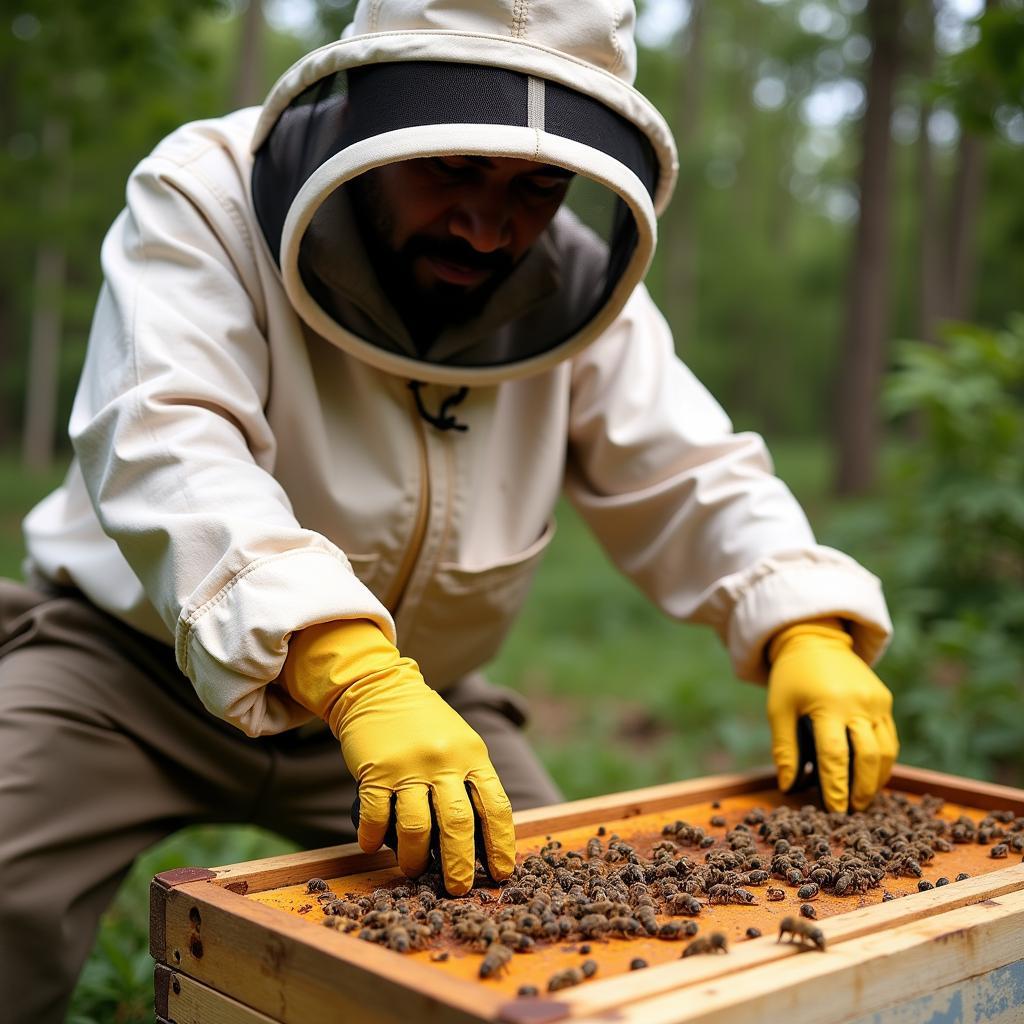Exploring the East African Lowland Honey Bee
The East African Lowland Honey Bee, Apis mellifera scutellata, is a subspecies of honey bee indigenous to central and southern Africa. These fascinating creatures play a crucial role in the ecosystem, and understanding their behavior and importance is key to appreciating the biodiversity of East Africa.
The Biology and Behavior of the Apis mellifera scutellata
The East African lowland honey bee is known for its highly defensive nature and propensity for swarming. This aggressive behavior is a survival mechanism, protecting their hives from predators like honey badgers and birds. Unlike their European counterparts, Apis mellifera scutellata are also known for their rapid colony reproduction, allowing them to quickly establish new hives and exploit available resources. They are incredibly efficient foragers, travelling further distances and pollinating a wider variety of plants. This contributes significantly to the region’s plant diversity and overall ecosystem health.
These bees are smaller than European honey bees and have a slightly darker coloration. They build exposed nests, often in tree cavities or rock crevices, showcasing their adaptability to diverse environments. Their ability to thrive in various habitats makes them a resilient species within the East African landscape.
What makes the East African lowland honey bee unique?
Their distinctive traits include a high reproductive rate, migratory tendencies, and a propensity for absconding, which is the act of abandoning a hive entirely due to unfavorable conditions. This ability to relocate quickly allows them to survive in challenging and unpredictable environments.
“The East African lowland honey bee’s adaptability is remarkable,” explains Dr. Khadija Mwamba, a renowned entomologist specializing in African bee species. “Their ability to abscond and establish new colonies allows them to thrive in diverse environments across East Africa.”
 East African Lowland Honey Bee Hive in a Tree
East African Lowland Honey Bee Hive in a Tree
The Importance of Apis mellifera scutellata in the Ecosystem
The East African lowland honey bee plays a vital role in the pollination of numerous plant species, contributing significantly to the region’s agricultural productivity and biodiversity. Their pollination services are essential for crops, wild plants, and the overall health of the ecosystem.
How does their pollination impact agriculture?
These bees are key pollinators for various crops, including coffee, mangoes, and other fruits and vegetables. Their foraging activities ensure the successful production of these crucial food sources, impacting both local livelihoods and regional economies.
Managing and Protecting the East African Lowland Honey Bee
Understanding the specific characteristics of Apis mellifera scutellata is crucial for beekeepers. Their defensive nature requires careful handling and specific management techniques.
 Beekeeper Working with East African Lowland Honey Bees
Beekeeper Working with East African Lowland Honey Bees
What precautions should beekeepers take?
Beekeepers working with Apis mellifera scutellata should wear appropriate protective gear and use smokers to calm the bees before hive inspections. Furthermore, understanding their swarming and absconding behavior is crucial for successful hive management.
“Respecting their defensive nature is paramount,” advises Mr. Joseph Kimambo, a seasoned beekeeper from Tanzania with years of experience working with African honey bees. “Appropriate protective measures and understanding their unique behavioral traits are essential for safe and successful beekeeping.”
Conclusion
The East African lowland honey bee, Apis mellifera scutellata, is a vital component of the East African ecosystem. Understanding its biology, behavior, and importance is crucial for both conservation efforts and sustainable beekeeping practices. Their role as pollinators is invaluable, impacting agriculture and biodiversity throughout the region. Further research and conservation efforts are essential to ensure the continued thriving of this fascinating and important species.
FAQ
Situations and Questions
Further Resources
african honey bee classification
Need Assistance?
Contact us: Phone: +255768904061, Email: [email protected] or visit us at: Mbarali DC Mawindi, Kangaga, Tanzania. We have a 24/7 customer service team.
